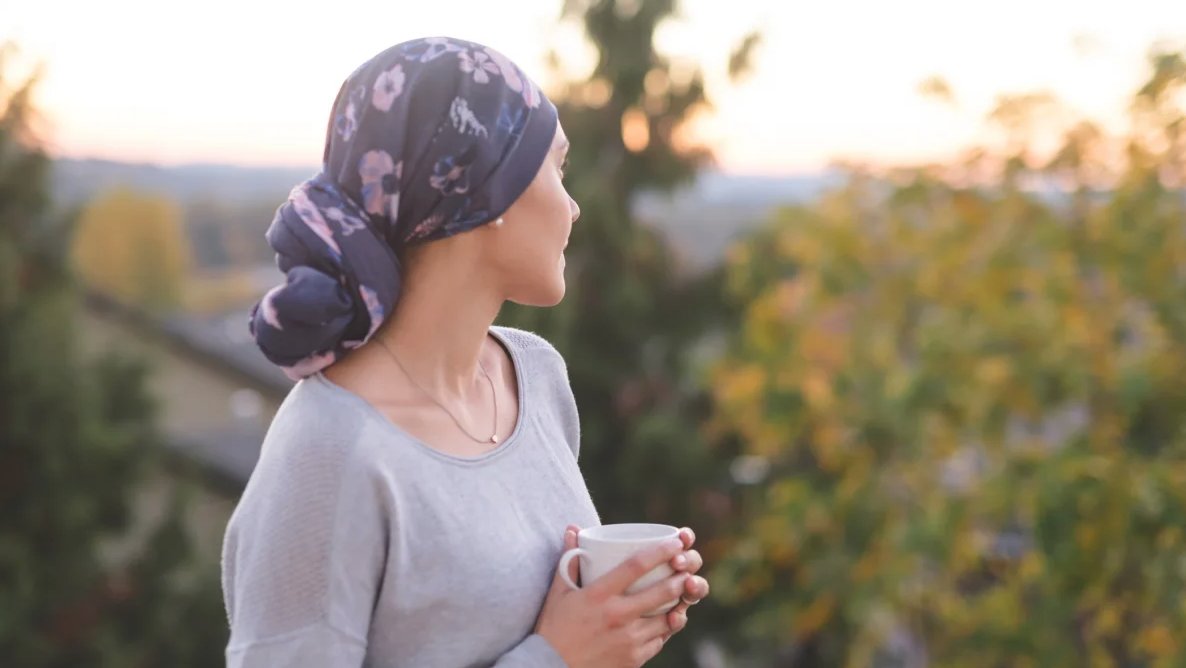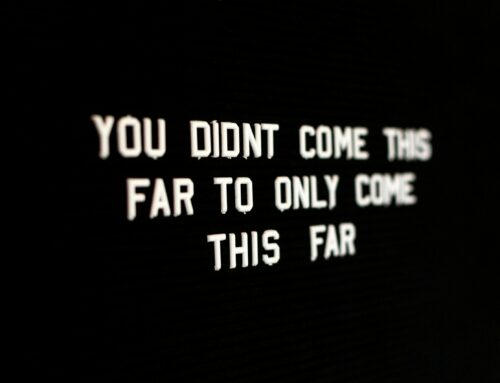As a cancer survivor, you may be troubled by survivor’s guilt.
Survivor’s guilt represents the notion that you survived, while your peer did not, making you perhaps feel that you could (or should) have tried harder to save the other person. This leads to wondering about your purpose. Why was I spared? Is there something more for me to do with my life? Do I deserve more time? These thoughts may lead to feeling guilty that you aren’t using the extra time given as intensely, meaningfully, or purposefully as you could.
You may also feel guilty that you were a burden for your loved ones, holding them back from living their lives. These are all classic examples of survivor’s guilt, and there are probably many more unique reasons than these that we can find to feel guilty.
Some survivors may experience guilt more deeply than others, or it may linger longer for some. People experience guilt for different reasons and there are many different ways to look at guilt to help you understand how you’re feeling.
Who do you feel guilty about?
Sometimes you may know the answer. For example, you may think about a cancer patient who had your same tumor type and whom you connected with at the treatment center. Or someone you met waiting for a doctor’s appointment. Or a loved one who put their own life on hold to support you. Sometimes you may not feel guilty toward anyone in particular.
What do you feel guilty about?
Your guilt may reflect something you did but didn’t want to do or something you didn’t do but wish you had. Sometimes you may feel guilty that you’re doing better or worse than someone else.
How to cope with survivor’s guilt
Guilty thoughts and feelings are a normal part of the cancer journey and cannot be easily erased. But you must try to make them manageable and tolerable to keep them from becoming all-consuming and killing your joy.
Guilt can be expressed in many ways, including self-destruction (e.g. drugs, alcohol, nicotine, performing poorly at work, relationship problems) or overcompensation (e.g. showering someone with gifts). Guilt can also coexist with anxiety, depression, or even post-traumatic stress.
Acknowledging both the thoughts of your brain and feelings of your heart rather than repressing them will allow you to channel your energy into a force of growth rather than destruction. It will allow you to take steps toward changing your perspective into a more realistic one. Some tips on how to cope with your guilt include:
- Recognize that feeling guilty will not bring someone back to life or undo an action or inaction.
- Remember that it is easy to realize after the fact what you could or should have done.
- Let your relationships provide the love and support you need when things are good and bad. Work with your loved ones in synergy; catch each other when you fall.
Having honest conversations with your loved ones may allow you to share and take ownership in your life decisions. The passing of time can also be healing, allowing you to grieve what or who has been lost.
If the guilt causes serious issues, you should discuss your feelings and actions with a professional, especially if talking to your loved ones about your pain perpetuates guilty feelings.
Everyone needs to find their own way toward making peace with guilt. Embracing the extra time you have been given after your cancer diagnosis is the best way to honor those you may feel guilty toward. And please remember — you are only human and you are enough.
Reviewed by the UPMC Hillman Cancer Center.
Sources:
- Adorno, G., et al. Positive aspects of having had cancer: A mixed-methods analysis of responses from the American Cancer Society Study of Cancer Survivors-II (SCS-II). Psychooncology.
- APA Dictionary of Psychology. Survivor Guilt. American Psychological Association.
- Glaser, S., et al. Survivor guilt in cancer survivorship. Social Work in Health Care.
- Gudenkauf, Lisa M., et al. Spirituality and Emotional Distress Among Lung Cancer Survivors. Clinical Lung Cancer.
- Office Of Cancer Survivorship. Statistics, Graphs and Definitions. National Cancer Institute.
- Perloff, T., et al. Survivor guilt: The secret burden of lung cancer survivorship. Journal of Psychosocial Oncology.
- Yeung, Jerf W.K., et al. Volunteering and health benefits in general adults: cumulative effects and forms. BMC Public Health.




